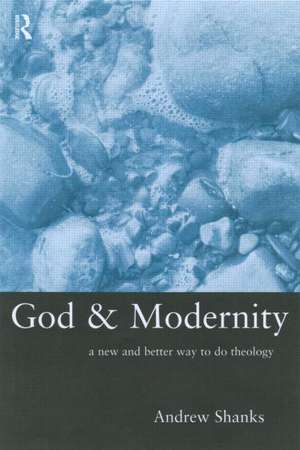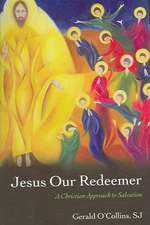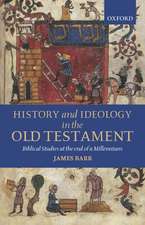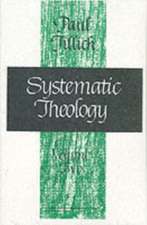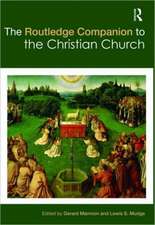God and Modernity: A New and Better Way To Do Theology
Autor Andrew Shanksen Limba Engleză Paperback – 18 noi 1999
Shanks argues that God is most present in a culture where public debate over ethical issues flourishes best. Social movements such as feminist movements, peace movements, and green movements have emerged to challenge both Church and State. These new movements are no longer confined to a particular confessional religious identity and are independent of state sponsorship. These social movements already made an individual impact on theology. What would a theology look like, systematically trying to reconcile older divisions in the theological debate with a new loyalty to such movements common ethos?
Anyone wishing to gain a refreshing insight into a new way of understanding theology and politics will welcome this ground-breaking book.
Preț: 366.21 lei
Nou
Puncte Express: 549
Preț estimativ în valută:
70.09€ • 72.90$ • 58.74£
70.09€ • 72.90$ • 58.74£
Carte tipărită la comandă
Livrare economică 14-28 martie
Preluare comenzi: 021 569.72.76
Specificații
ISBN-13: 9780415221894
ISBN-10: 0415221897
Pagini: 200
Dimensiuni: 156 x 234 x 15 mm
Greutate: 0.37 kg
Ediția:1
Editura: Taylor & Francis
Colecția Routledge
Locul publicării:Oxford, United Kingdom
ISBN-10: 0415221897
Pagini: 200
Dimensiuni: 156 x 234 x 15 mm
Greutate: 0.37 kg
Ediția:1
Editura: Taylor & Francis
Colecția Routledge
Locul publicării:Oxford, United Kingdom
Public țintă
Postgraduate and UndergraduateRecenzii
'This is one of the most interesting and challenging books I have read recently ... This book challenged my own theological prejudices and commitments and Shanks is full of imaginative and intelligent insights.' - Gavin D'Costa, Univeristy of Britsol, Theology
'Lucidly written, and easy to read ... God and Modernity is an original and provocative contribution to theology.' - Times Literary Supplement
'Andrew Shanks has given us an elegant monography deidcated to the finding of a theology which breaks out from the confinement within the university (liberal) or the church (neo-orthodox)' - Andy Draycott, Themelios
'... in this original and important book, Andrew SHanks engages with one interesting feature of current society: the emergence in our 'post-political' times of 'new social movements' ... That [he] can relate a theological reading of solidarity to social movements highlights the importance and provocation of God and Modernity - Peter Scott, Reviews in Religion and Theology
'Lucidly written, and easy to read ... God and Modernity is an original and provocative contribution to theology.' - Times Literary Supplement
'Andrew Shanks has given us an elegant monography deidcated to the finding of a theology which breaks out from the confinement within the university (liberal) or the church (neo-orthodox)' - Andy Draycott, Themelios
'... in this original and important book, Andrew SHanks engages with one interesting feature of current society: the emergence in our 'post-political' times of 'new social movements' ... That [he] can relate a theological reading of solidarity to social movements highlights the importance and provocation of God and Modernity - Peter Scott, Reviews in Religion and Theology
Cuprins
Chapter 1 The promise of new social movements; Chapter 2 ‘Theology’; Chapter 3 Three stages of modernity?; Chapter 4 A second Axial Period?; Chapter 5 Arguments for calendar-reform; Chapter 6 Beyond ‘metaphysics’; Chapter 7 Post-metaphysical faith; Chapter 8 Expressivism and individuality in new social movements; Chapter 9 Against ‘recoil-theology’; Chapter 10 The healing of Christendom’s original trauma; Chapter 11 A new covenant?; Chapter 12 The other matrix; Chapter 13 ‘Holy, Catholic and Apostolic’; Chapter 14 Discourse ethics and religion; Chapter 15 ‘Wo aber Gefahr ist…’;
Notă biografică
Andrew Shanks is a priest in the Church of England, currently working for the diocese of York. He is also the author of Hegel’s Political Theology and Civil Society, Civil Religion.
Descriere
Andrew Shanks argues that God is most present in a culture where public debate over ethical issues flourishes best.
